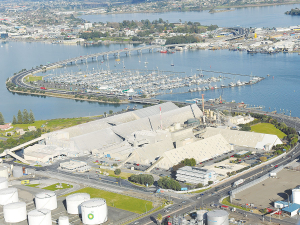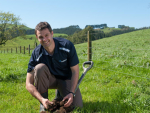The co-operative says it has enough product for autumn and is managing to keep up with demand.
However, Ballance general manager sales Jason Minkhorst says the recent global price increases are on the back of two years of high prices.
"Just as we finally saw fertiliser prices start to drop, the Ukraine invasion has, unfortunately, seen prices rebound," he told Dairy News.
Russia's invasion of Ukraine made a bad situation worse.
"Although we are far from Europe, the impacts of this war are being felt here in New Zealand, particularly as the sanctions have bitten.
"This is in the form of increased costs of fuel and in our case, fertiliser." Minkhorst says Ballance had anticipated this disruption.
:"We have been focused on surety of supply for autumn, ensuring our farmers have the feed required for animals going into winter, particularly as we knew the meat companies would be disrupted by Covid and farmers are left with additional animals on farm as we go into winter."
Russia is the largest exporter of fertiliser in the world and also supplies a significant percentage of Europe's energy needs.
In addition, Belarus' exports of potassium are disrupted because of its support for Russia. Collectively Russia and Belarus account for 40% of global potassium supply.
As the war and sanctions progressed, there was a rise in fertiliser prices, particularly nitrogen and potassium.
Minkhorst points out that global nitrogen prices rose to US$1,000/t and this excludes freight and local distribution costs.
Ballance was not adversely impacted in the short to medium term as it does not source finished or raw materials directly from Russia, Belarus or Ukraine.
"However, we are managing the knock-on, so that we can maintain surety of supply for our farmers and growers.
"Our focus is helping farmers through this autumn, but we are also very aware of the impacts of the cost of fertiliser for the coming spring. We will be watching this closely over winter.
"As a cooperative we have been trying to help buffer our farmers from these global price movements.
"In fact we recently reduced the price of nitrogen specifically to help our farmers with their feed requirements for autumn.
"This is particularly important given that many regions have been very dry, and Southland is now in drough conditions.
"The point of this price drop was to help our farmers and growers set themselves up for winter."


















